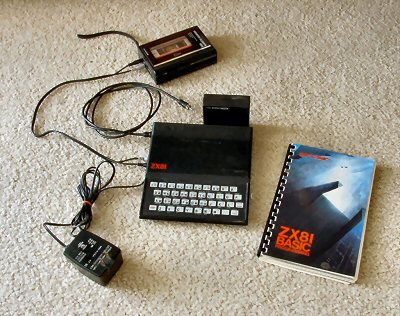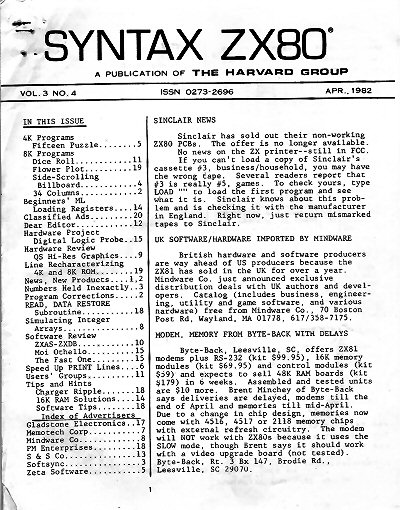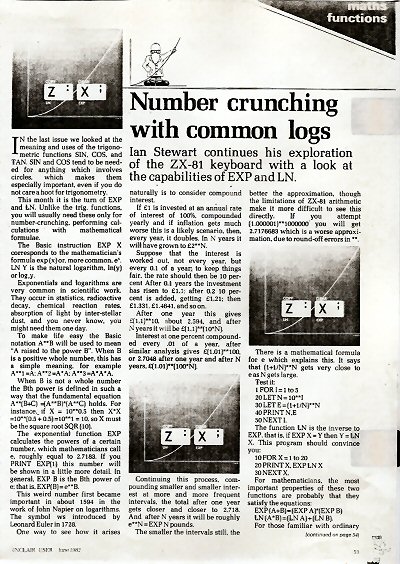My Sinclair ZX-81
My dad had been a serious microcomputer hobbyist (they didn’t call them PCs yet) in the SF Bay Area in the mid-late 70’s. Although he was fascinated by these early machines, he was more the musician/writer type and was mechanical, but not really technical.
My step-mother and father did some teaching at the San Francisco Community Music Center in the Mission district (Him: recorder, her: modern dance). Through one of the faculty, Jef Raskin, dad did some tech-writing work for a budding company Jef was working with making a new micro computer. They were working out of someone’s garage in Brisbane. I remember playing Pong on it and the case was made out of wood with a sloped front in the same basic shape that would later become the Apple II.
The first micro in our house was a prototype PolyMorphic Poly-88 S-100 bus system (the S-100 was a semi successful early microcomputer standard). How prototype? Most the boards were not soldered components on PC boards but wire-wrapped construction. He paid something like $1,500 for it and another $3,000 for a 16 KB memory board.
The Poly 88 was a dead chunk of metal until you loaded the “OS” which was really an early BASIC. The load was by cassette and you had to have the volume on the cassette deck just right or the load would fail 15 minutes into its 20 minute cycle.
My father got a government job in the Middle East that lasted from the late 70’s to the early 80’s. My sister and I would go out to visit a couple times a year. We would typically fly out from San Francisco, spend the night in London, and continue on to the mid-east the next day. We were kids but traveled alone on maroon official passports and had done the trip many times.
When the IBM PC came out it was very expensive. You could easily spend anywhere from $3,000 to $10,000 on a set up. Instead of the IBM PC, dad had a CP/M “Big Board” Z-80 based system he built from a kit. It could run MS BASIC, VisiCalc, and an early WordStar – I’ll talk about that machine in another post. I played with that machine all the time I could. I wanted a machine of my own for the ten months a year I was away from dad’s machine.
On one “out bound” trip I saw one of the new Sinclair ZX-81 kits for sale at a shop in Heathrow Airport. I talked my dad into giving me the money for the computer (I’m thinking it was 65 Pounds?) and picked up the kit on my way home. I had taken electronics classes and knew how to solder digital circuits so I slapped that baby together and had it working in no time.
Dad’s Big Board had 64K (the max you could have with a Z-80). The ZX-81 had 2K. 2048 whole bytes of RAM. This article is more than 2K.
I quickly learned that I could write big (well, bigger) programs if I kept the variable names short. Better still if I used line numbers starting with 1 instead of 10 (saved two whole bytes!).
Later, after Timex had brought out the Sinclair line under their name, I bought the 16K RAM pack and then I was really cooking – real variable names, four-digit line numbers.
A problem was that my Sinclair was an early model and the power supply was not well filtered under the additional current load of the 16K RAM pack so cassette recordings (Writes) of program dumps had a 60 Hz hum in them so loud that listening to the recording later (Reads) was difficult and error prone.
At the time there was an active community of hobbyist and small businesses dedicated to the ZX-80/81. I have two issues of a newsletter “Syntax ZX80” and several photocopied articles from “Sinclair User.” Microcomputing and Byte also regularly featured ZX-80/81 articles.
If you were a Real Programmer, there was machine code, and books to support you.
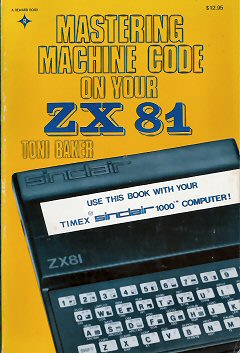
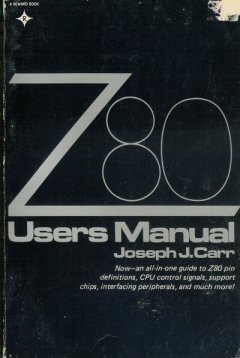
I see that these days there are ZX-81 emulators available for anyone who wants to suffer like a pioneer.
I have to admit I put this in the same category as running a marathon.
Barefoot.
On broken glass.
While I learned quite a bit about programming from those early machines, I do not miss working on them.
Some sites on the ZX-81:
ZX81 Home Page
ZX-81 Download Page
